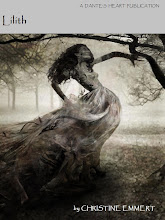 Dear readers, I have some news! It is news to me, and it may or may not be news to you. World War Z: An Oral History of the Zombie War, the shockingly good journalism/horror thriller by Max Brooks (Mel Brooks' son) is being adapted into a movie - slated to arrive in theaters sometime in 2010. Brooks' novel documents humanity's struggle to survive raving hordes of the undead, through a series of recorded interviews with survivors - and provides savvy commentary on cultural and economic politics along the way. The book's twists and turns are surprising, thoughtful and dramatic, and the zombie horror is compelling and wildly imaginative. (Having a lifelong phobia of the walking, moaning dead, I could not sleep soundly for days. Imagine hunting through the pitch-black sewers beneath Paris for submerged, hungry zombies, and if that doesn't chill you, then I can't help you see the charms of Max Brooks' work.)
Dear readers, I have some news! It is news to me, and it may or may not be news to you. World War Z: An Oral History of the Zombie War, the shockingly good journalism/horror thriller by Max Brooks (Mel Brooks' son) is being adapted into a movie - slated to arrive in theaters sometime in 2010. Brooks' novel documents humanity's struggle to survive raving hordes of the undead, through a series of recorded interviews with survivors - and provides savvy commentary on cultural and economic politics along the way. The book's twists and turns are surprising, thoughtful and dramatic, and the zombie horror is compelling and wildly imaginative. (Having a lifelong phobia of the walking, moaning dead, I could not sleep soundly for days. Imagine hunting through the pitch-black sewers beneath Paris for submerged, hungry zombies, and if that doesn't chill you, then I can't help you see the charms of Max Brooks' work.)The book is being adapted for film by Michael Straczynski, one of the top writers for the television science fiction series Babylon 5. Here is an excerpt from an early review of the script at CinemaBlend.com:
I love this script. Love every dark, somber, upsetting page of it. There’s a story about black market organs that is just brutal, an off-the-record conversation with a CIA friend, and an insane beach sequence that I can’t wait to see on film. All in the first 50 pages.
You can read more about the script here. You can also read a review of the book here, in Issue 1 of Dante's Heart. Finally, an interview with the author about the upcoming film is available here.

















